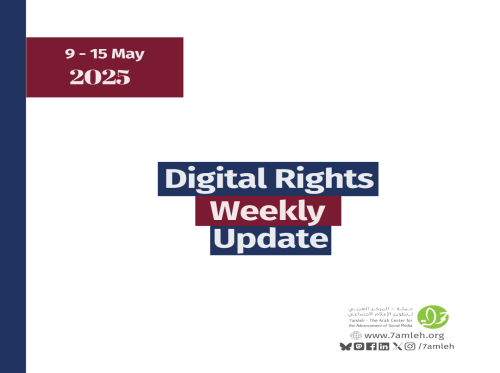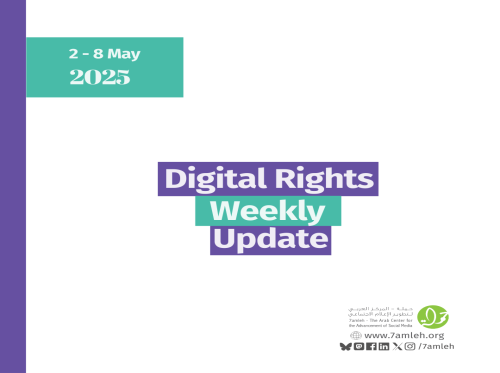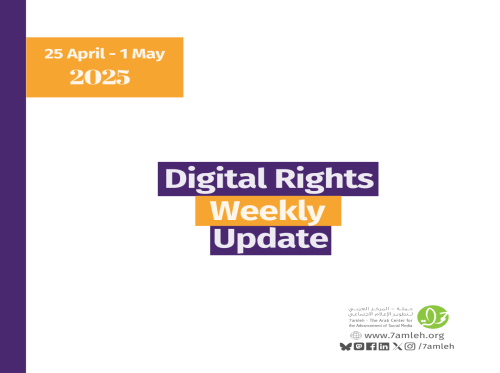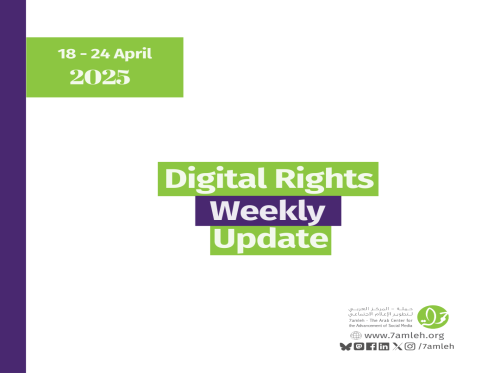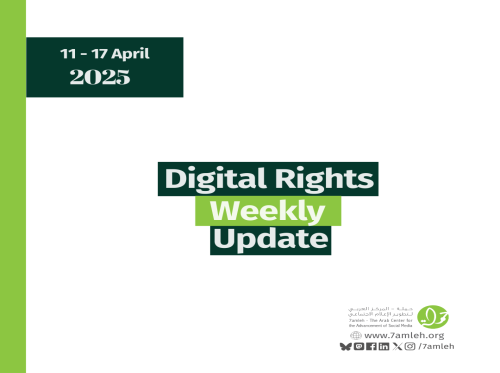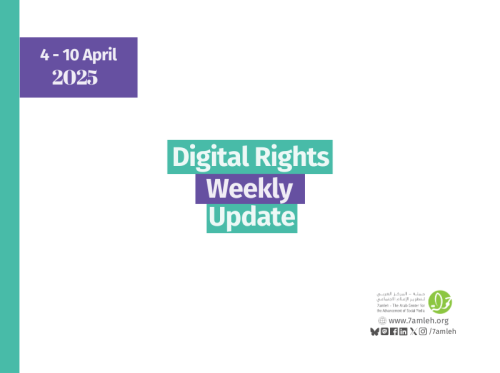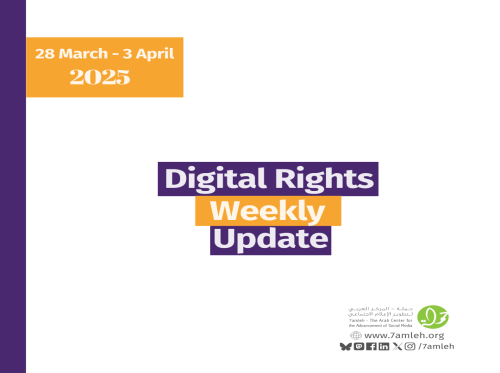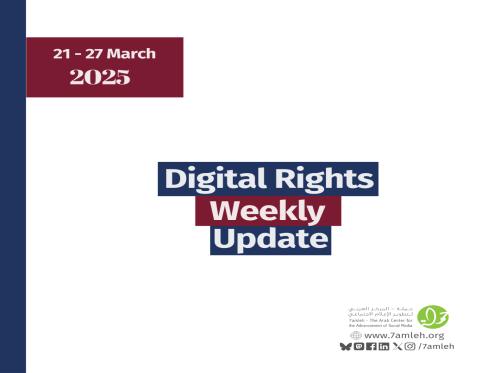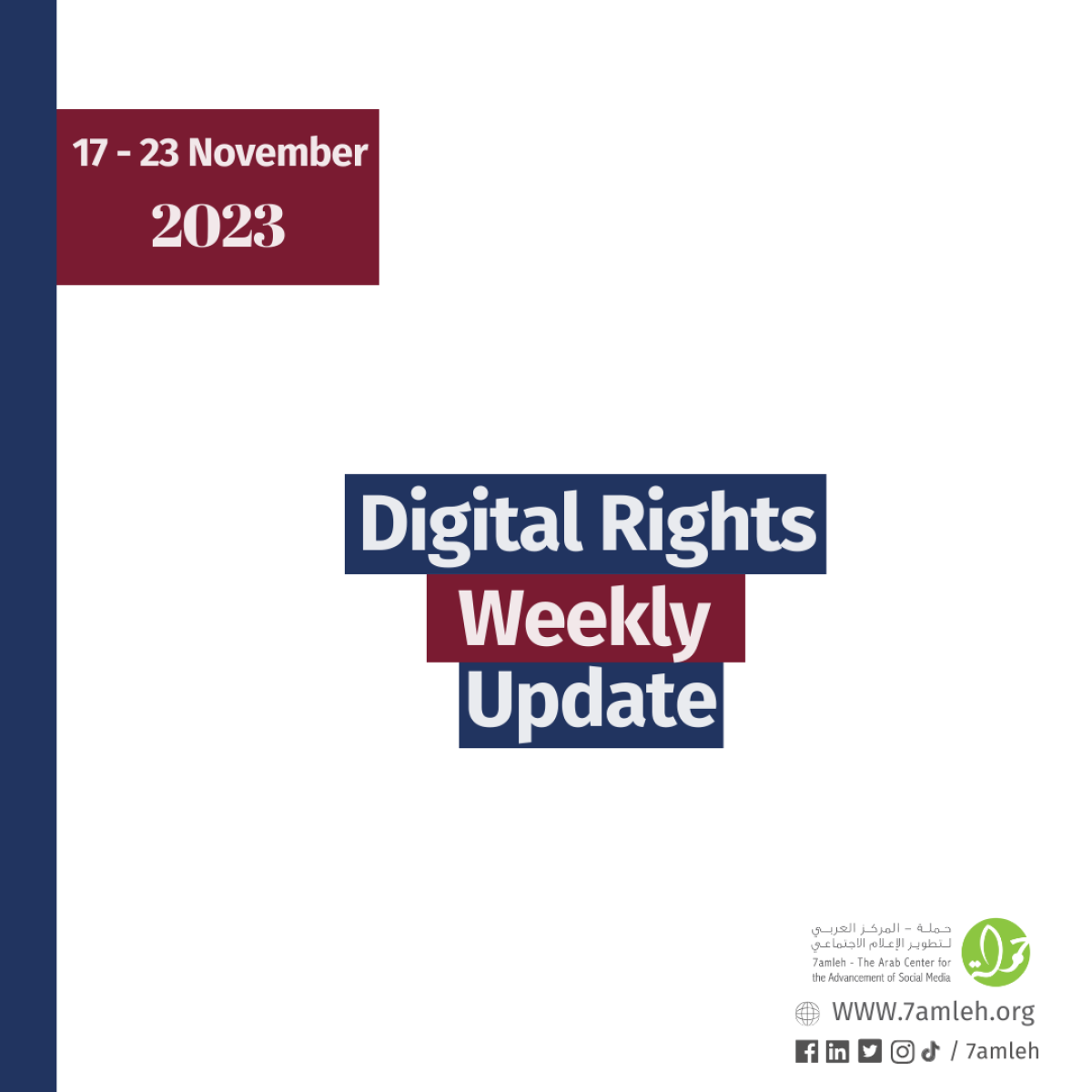
1.
Meta Should Stop Profiting from Hate (English)
7amleh
7amleh - The Arab Center for the Advancement of Social Media tested Meta’s content moderation policy’s ability to prohibit hate speech and incitement in paid advertisements. Our investigation revealed a troubling reality: Meta reaps financial benefits from the dissemination of harmful content within its platforms. The investigation was prompted by the discovery that Facebook ran targeted ads calling for the assassination of individuals, and ads calling for the forcible expulsion of Palestinians from the occupied West Bank to Jordan.
2.
7amleh
7amleh - The Arab Center for the Development of Social Media published a position paper titled “New Law Prohibiting the Consumption of Terrorist Publications” written by lawyer Abeer Bakr. The paper aims to analyze the law from a human rights perspective and examine its repercussions on the ground. The Israeli Knesset approved the draft law banning the consumption of terrorist publications with 17 members of Knesset voting in favor and 4 opposed, on November 8, 2023.
3.
Facebook Approved an Israeli Ad Calling For Assassination of Pro-Palestine Activist (English)
The Intercept
A SERIES OF advertisements dehumanizing and calling for violence against Palestinians, intended to test Facebook’s content moderation standards, were all approved by the social network, according to materials shared with The Intercept. The submitted ads, in both Hebrew and Arabic, included flagrant violations of policies for Facebook and its parent company Meta. Some contained violent content directly calling for the murder of Palestinian civilians, like ads demanding a “holocaust for the Palestinians” and to wipe out “Gazan women and children and the elderly.” Other posts, like those describing kids from Gaza as “future terrorists” and a reference to “Arab pigs,” contained dehumanizing language.
4.
Over 90% of pro-Palestinian content deleted since Oct. 7 on social media following Israel's request (English)
The New Arab
Social networking sites, mostly Meta-owned, have deleted thousands of pro-Palestinian posts since the outbreak of Israel’s brutal war in Gaza, in response to Tel Aviv’s request to do so. The Israeli Attorney General’s Office has sent approximately 9,500 requests since October 7 to Meta - which owns Facebook and Instagram - as well as the video-sharing app TikTok, to remove content related to Israel’s brutal war in Gaza, according to a recent report published by Forbes.
5.
TechScape: Are social media giants silencing online content? (English)
The Guardian
As the ongoing conflict between Israel and Hamas and its devastating effects play out in real time on social media, users are continuing to criticise tech firms for what they say is unfair content censorship – pulling into sharp focus longstanding concerns about the opaque algorithms that shape our online worlds. From the early days of the conflict, social media users have expressed outrage at allegedly uneven censorship of pro-Palestinian content on platforms like Instagram and Facebook.
6.
Israel-Palestine war: Social media surveillance creates a 'culture of fear' on UK campuses (English)
Middle East Eye
Academics have reported a "culture of fear" on UK campuses, as social media surveillance, which disproportionately targets racialised academic staff and students supporting Palestine, has resulted in reports to the police, the Prevent counter-terrorism strategy and university disciplinary committees. "Immediately after October 7, we saw a kind of surveillance taking place on social media, particularly against any pro-Palestinian voices, but particularly against Palestinians and other people of colour," Neve Gordon, the chair of the British Society for Middle Eastern Studies (BRISMES)'s committee on academic freedom, and professor of human rights at Queen Mary University told Middle East Eye.
Related Articles
Subscribe to Our Email Alerts
And stay updated with our latest activities, news, and publications!

